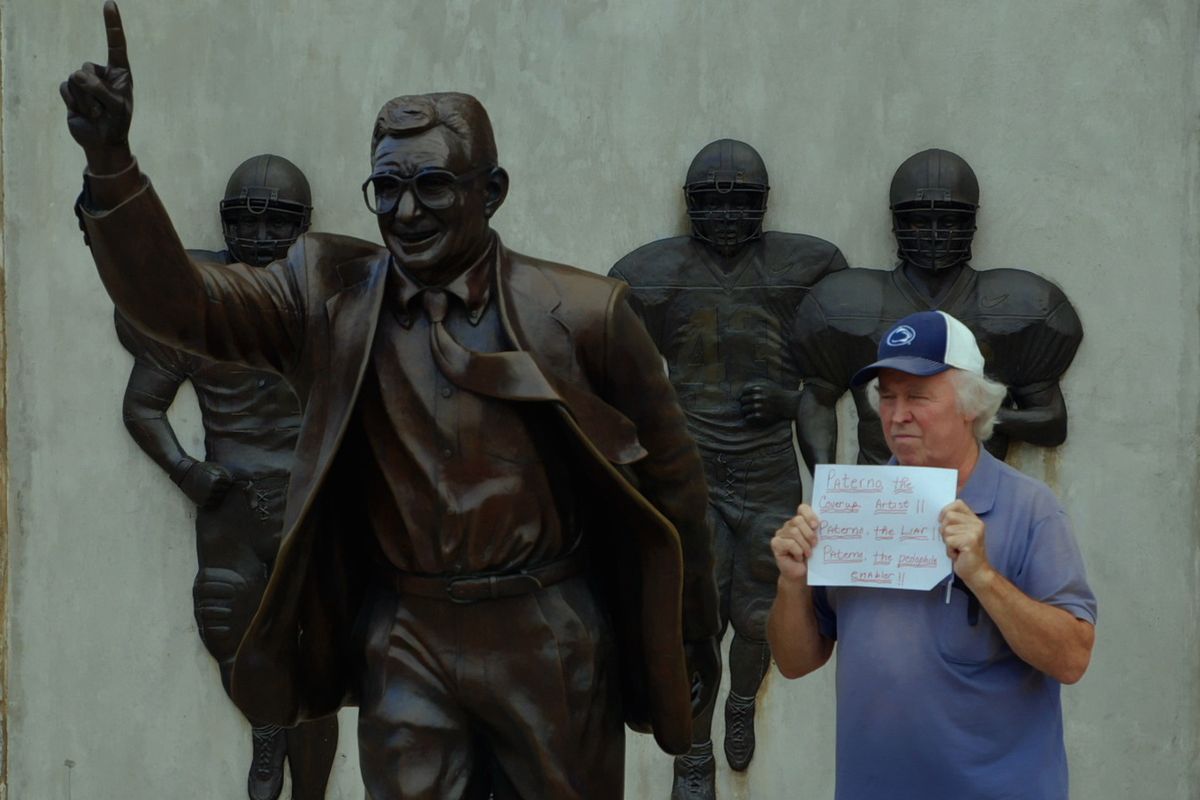Film examines Penn State scandal, blame

Amir Bar-Lev’s documentaries include “The Tillman Story,” about a friendly-fire casualty in Afghanistan, and “My Kid Could Paint That,” a portrait of an alleged child prodigy and her family. In both films (both excellent), the truth lurks beneath layers of denials and cover-ups designed to establish a preferred version of events.
“Happy Valley” finds director Bar-Lev working through another morass of truth and lies. While the grim facts of the Penn State sexual abuse scandal are not at issue, attendant matters of morality, ethics and protecting the vulnerable are being debated to this day.
More than anything the movie’s about the tyranny of the mob, whether the mob comes to praise its Caesars or to bury them. In 2012, retired Penn State assistant football coach Jerry Sandusky was found guilty of 45 out of 48 counts of sexual abuse. Penn State’s beloved head coach, Joe Paterno, knew of the abuse and did the bare legal minimum, reporting it up the university administration chain. There the damaging truth rested, quietly, for too long. Once the scandal broke and victim after victim came forward, Paterno lost his job and died of cancer months later, still a symbol of football excellence to many.
The most heroic figure in “Happy Valley” is a survivor, Matt Sandusky, the adopted son of the disgraced assistant coach. For years he lied to himself and to others about his adoptive father’s crimes. “I was loyal to the family,” he says on camera. “I wasn’t going to betray anybody.” Court-ordered, as one lawyer says, straight “into an abuser’s hands,” Sandusky unburdened himself of the secrecy at last.
It’s the divisive arguments regarding Paterno’s culpability, however, that dominate “Happy Valley.” When Bar-Lev shows us the campus statue of Paterno, erected when he was very much alive, dismantled after the Sandusky scandal, he’s getting at what Penn State film professor Matt Jordan calls “a shaming spectacle” no less American than the sport consuming State College, Pennsylvania. “There is a reverence for football in America. Period,” Jordan says.
“Happy Valley” might’ve fleshed out some of these larger implications. The film could’ve benefited from another 15 or 20 minutes of detail and nuance. What’s there, though, is strong, thoughtful and disturbing. As Arthur Miller wrote in “All My Sons”: “There’s a universe of people outside and you’re responsible to it.” Whatever the team affiliation. Whoever their protectors.